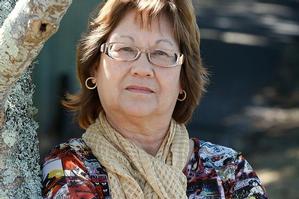CHINESE SPORTS.
NATIONAL FESTIVAL. ANNIVERSARY OF FOUNDING OF REPUBLIC. The Chinese community of Christchurch kept holiday yesterday, the nineteenth anniversary of the Chinese Republic, which was, founded after the fall of the Manchu Dynasty in 1911 The celebration took the form of a picnic and sports meeting at English Park. He festival is given the name the Double Tenth because it took place on the tenth day of the tenth month of the European Calendar this calendar was adopted after the revolution, which also inaugurated a greater measure of adoption of European customs than had been the rule under the former rulers. At English Park yesterday the festival was opened by Mr Yee Gam, the presidents of the Chinese Sports Committee. who addressed the Chinese, numbering about 60 who were present. The interpreter explained to the Europeans present that the speech referred to the services done for China by Dr, Sun Yat-sen, who was the principal figure of the revolution. Apart from the sports events, which followed immediately after the speeches, the principal feature of the afternoon was the Association football match, played between the Chinese team and the Marist junior team This resulted in a win for the Europeans by 5 goals to 4, after a closely contested game. There was a large attendance of Chinese from all surrounding districts including representatives from Wellington, Dunedin. South Canterbury and Westland. All of those present were entertained at afternoon tea. and a touch of colour was lent to the gathering, which was large in spite of the bad weather conditions, by the Chinese banner of welcome and the flags British and Chinese which flew above the grounds.
The whole of the gate takings are as has been the custom, to be given to the Christchurch Public Hospital All the expenses of the meeting were borne by the Chinese community. The officials for the sports were President Yep Gam; K. N Lowe: interpreter Eric Chun-. starters W. L Kee and Willie Tims; and judges. Harry Wong and Chan S Wah: Chinese announcers Norman Lim and Y Yak; organiser George Ah Chang and treasurer Fred Young. The sports results as follows: Three-legged Race —George Ah Chang and George Yee 1, Kwok Bros 2. Backward Walking Race—Harry Kwok 1, Arthur Yee 3. Net to Net Race—Harry Kwok 1, F. Floy 2. Thread-the-Needle Race—Harry Kwok I, George Yee 2 Egg and Spoon Race—George Yee 1 A. Kwok 2. European's Race—E. Harper 1, R Gib bons 3. Slow Cycle Race—Arthur Teo. Children's Race —Irma Lowe 1, Joyce Tim 2 Bicycle Race—Arthur Yee 1, Fook Hor 3. Europeans' Bicycle Race C C Allen 1. Flint and Smith 3
Football Match. The football match, won by Marist, 6-4, was evenly contested throughout, although, the Marist. team had the advantage of the play -in the second half. The teams were: Chinese: George Shue. Percy Lowe, George Yee, Arthur Yee. Yea Too,.F. Loy, Harry Kwok, Allan Kwok, Willie Chong Lee. George Ah Chang (captain), and J S. Tom. Marist: W. Barrett, Fullen, F. Tool, C. Hull, B. Porter, P. Watts. L George, C Grimes (captain), M. George, J. Porter, and D Sellers. The first spell ended with the score 3-2 in favour of the Chinese team, but in the second spell Marist scored three goals and the Chinese only one, a penalty The scorers for Marist were J. Porter (2). C Hall, L. George, and T Grimes, and for the Chinese, Harry Kwok 3.Willie Chong Lee, and Allan Kwok" After the match the prizes won were presented by Mr Yee Gam Following this many of the Chinese returned- to the City in beflagged motor-cars, making a gay procession. Press, Volume LXVI, Issue 20056, 11 October 1930, Page 5
http://paperspast.natlib.govt.nz/cgi-bin/paperspast?a=d&cl=search&d=CHP19301011.2.23&srpos=6&e=-------10--1----0percy+ah+chang--








